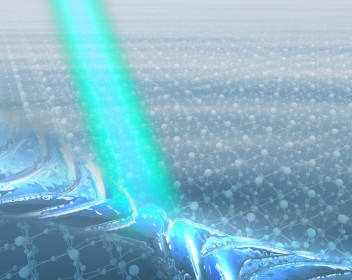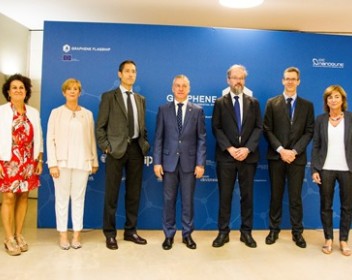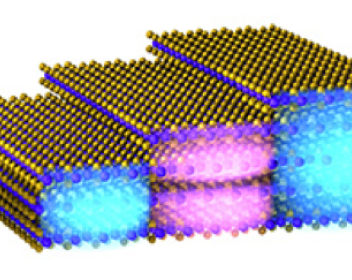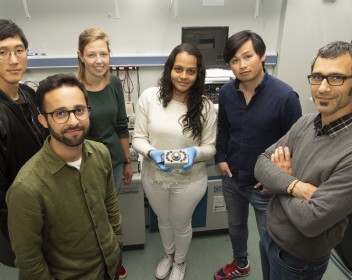Newsroom
News
nanoGUNE joins the Basque Health Cluster
nanoGUNE is proud to be part of one of the region’s most important and active clusters: the Basque Health Cluster.
International Day of Women and Girls in Science brought to Donostia-San Sebastian by four research centres
The research centres Donostia International Physics Center (DIPC), the Centre for Materials Physics (CFM CSIC-UPV/EHU), CIC nanoGUNE and CIC biomaGUNE have joined forces to present a joint programme to mark International Day of Women and Girls in Science, being held worldwide on Monday, 11 February. In Donostia-San Sebastian the programme will go on until Friday 15 February with public talks, workshops, visits and seminars in which 50 volunteers from the organising research centres will be participating. The aim of the initiative is to transmit a clear message: Science is girls’ stuff.
CIC nanoGUNE: a decade of science, collaboration, training and transfer
Nanoscience and nanotechnology are already and are set to become the great architects of true transformations. The production of graphene, for example, which everyone regards as a material of the future owing to the numerous properties it is capable of bringing together, would have been impossible without the advances in nanotechnology and without the knowledge generated by research teams such as that of nanoGUNE. Research into nanoscience and nanotechnology calls for highly sophisticated architectural and engineering conditions that make it possible to tackle experiments that would be impossible at an ordinary facility. NanoGUNE built a state-of-the-art infrastructure for this purpose ten years ago.
Researchers discover directional and long-lived nanolight in a 2D material
An international team led by researchers from Monash University (Melbourne, Australia), University of Oviedo (Asturias, Spain), CIC nanoGUNE (San Sebastián, Spain), and Soochow University (Suzhou, China) discover squeezed light ('nanolight') in the nanoscale that propagates only in specific directions along thin slabs of molybdenum trioxide – a natural anisotropic 2D material –. Besides its unique directional character, this nanolight lives for an exceptionally long time, and thus could find applications in signal processing, sensing or heat management at the nanoscale.
Over 650 graphene stars meet in San Sebastian
The international Graphene Week 2018 congress kicked off today at the Kursaal Conference Centre in Donostia-San Sebastian; its local organiser is the CIC nanoGUNE research centre. This congress is the main conference of the Graphene Flagship, one of the biggest European research projects in history with over 150 members and funding to the tune of 1,000 million euros.
Nano-imaging of intersubband transitions in few-layer 2D materials
nanoGUNE participates in a collaboration led by ICFO (further including the Institut Lumière Matière - CNRS, Technical University of Denmark, Max Planck Institute for the Structure and Dynamics of Matter, and the National Graphene Institute), which reports on the first observation of intersubband transitions in 2D materials via scattering scanning near-field optical microscopy. The results published in Nature Nanotechnology pave the way towards an unexplored field in this new class of materials and offer a first glimpse of the physics and technology enabled by intersubband transitions in 2D materials.
Students from UPV / EHU, Tecnun, UAB and the UB carry out summer internships at CIC nanoGUNE
Saioa Cobo, "Junior Member of the University Institute of France"
CIC nanoGUNE collaborates with Intel to open up the way for future computers
The Basque nanoscience research centre CIC nanoGUNE and the multinational company Intel, the world’s largest manufacturer of integrated circuits, are working together on a state-of-the-art project that seeks to develop what Intel refers to as the “MESO logic”: a new technology that combines memory, interconnections and logic requirements for future computing needs.
“Me permite tener un pie en la ciencia, sabiendo que lo que hacemos es aplicable”
Entrevista a Bentejuí Medina, investigador pre-doctoral de CIC nanoGUNE y la Universidad de Mondragón en la revista MU Universitas.
Agenda
| Mon | Tue | Wed | Thu | Fri | Sat | Sun |
|---|---|---|---|---|---|---|
|
1
|
2
|
3
|
4
|
5
|
6
|
7
|
|
|
|
|
|
|
|
|
|
8
|
10
|
11
|
12
|
13
|
14
|
|
|
|
|
|
|
|
|
|
|
15
|
16
|
17
|
18
|
19
|
20
|
21
|
|
|
|
|
|
|
|
|
|
22
|
23
|
24
|
25
|
26
|
27
|
28
|
|
|
|
|
|
|
|
|
|
29
|
30
|
31
|
1
|
2
|
3
|
4
|
|
|
|
|
|
|
|
|
Events
- 04/02/2026 to 06/02/2026
nanoGUNE Winter School 2026
nanoVISUALS
Find events' photos, experimental images, videos, audios, and nanoGUNE's corporate images.





